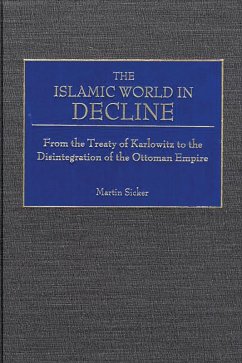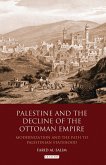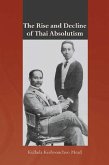The long era of Muslim political ascendancy that began in a small region of western Arabia reached its pinnacle some nine hundred years later with the siege of Vienna by Suleiman the Magnificent in 1529. Suleiman then concluded that, given the increasingly volatile geopolitical environment, Muslim expansionism in Eurasia had run its course. The subsequent decline of Ottoman power also meant, in effect, the decline of political Islam, which had been intimately bound to it for centuries.
As Sicker shows, the problems faced by the Ottoman Empire were also faced by the Persian Empire and both underwent an extended period of political decline and territorial retrenchment in the face of imperialist pressures from Europe and Asia. The greatest challenge to the world of political Islam came from Western Europe, especially France and Great Britain. The Ottoman and Persian empires assumed a global importance in the 19th century, not because of anything in them of intrinsic economic value, but because of their geopolitical and geostrategic significance. They became, in effect, a buffer zone separating Europe from the wealth of the East, at a time when European imperialism was on the march in Asia. It thus came about that the rivalries of the Great Powers, most especially those of Great Britain, France, and Russia, were played out in the Middle East. This book will serve as a vital resource for students, scholars, and other researchers involved with Middle East History, Political Islam, and Modern European History.
As Sicker shows, the problems faced by the Ottoman Empire were also faced by the Persian Empire and both underwent an extended period of political decline and territorial retrenchment in the face of imperialist pressures from Europe and Asia. The greatest challenge to the world of political Islam came from Western Europe, especially France and Great Britain. The Ottoman and Persian empires assumed a global importance in the 19th century, not because of anything in them of intrinsic economic value, but because of their geopolitical and geostrategic significance. They became, in effect, a buffer zone separating Europe from the wealth of the East, at a time when European imperialism was on the march in Asia. It thus came about that the rivalries of the Great Powers, most especially those of Great Britain, France, and Russia, were played out in the Middle East. This book will serve as a vital resource for students, scholars, and other researchers involved with Middle East History, Political Islam, and Modern European History.









